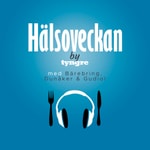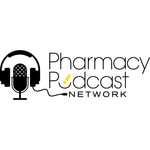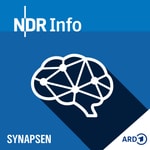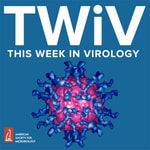Medmastery's Cardiology Digest – Details, episodes & analysis
Podcast details
Technical and general information from the podcast's RSS feed.
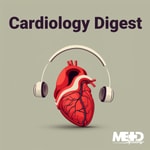
Medmastery's Cardiology Digest
Medmastery
Frequency: 1 episode/22d. Total Eps: 25

Recent rankings
Latest chart positions across Apple Podcasts and Spotify rankings.
Apple Podcasts
🇨🇦 Canada - medicine
29/07/2025#76🇨🇦 Canada - medicine
09/07/2025#71🇨🇦 Canada - medicine
19/06/2025#88🇫🇷 France - medicine
15/05/2025#69🇫🇷 France - medicine
04/04/2025#77🇫🇷 France - medicine
03/04/2025#51🇬🇧 Great Britain - medicine
15/03/2025#64🇬🇧 Great Britain - medicine
10/03/2025#66🇬🇧 Great Britain - medicine
31/01/2025#93🇬🇧 Great Britain - medicine
28/01/2025#77
Spotify
No recent rankings available
Shared links between episodes and podcasts
Links found in episode descriptions and other podcasts that share them.
See allRSS feed quality and score
Technical evaluation of the podcast's RSS feed quality and structure.
See allScore global : 53%
Publication history
Monthly episode publishing history over the past years.
#25: Influenza and myocardial infarction, fasting protocols for cath lab procedures, anticoagulation therapy and transcatheter aortic-valve replacement
Season 1 · Episode 25
mardi 8 octobre 2024 • Duration 10:56
In today’s episode of Cardiology Digest, we look at three recent research papers that can impact your clinical practice. They’re from NEJM Evidence, the European Heart Journal, and The New England Journal of Medicine.
STUDY #1: Today’s journey begins with a study examining the interplay between influenza and myocardial infarctions. Could the flu shot be more than just a seasonal precaution?
de Boer, AR, Riezebos-Brilman, A, van Hout, D, et al. 2024. Influenza infection and acute myocardial infarction. NEJM Evid. 7:EVIDoa2300361. (https://doi.org/10.1056/EVIDoa2300361)
STUDY #2: Next, we wade into a cath lab debate over fasting protocols. Join us to explore research that flips traditional pre-procedure fasting requirements on their head. Are we on the brink of a new era?
Ferreira, D, Hardy, J, Meere, W, et al. 2024. Fasting vs no fasting prior to catheterisation laboratory procedures: The SCOFF trial. Eur Heart J. Published online. (https://doi.org/10.1093/eurheartj/ehae573)
STUDY #3: Finally, we dig into the complexities of anticoagulation in transcatheter aortic-valve replacement patients. This study sheds light on the choice between interrupting or continuing anticoagulation, and has implications for everyday practice.
van Ginkel, DJ, Bor, WL, Aarts, HM, et al. 2024. Continuation versus interruption of oral anticoagulation during TAVI. N Engl J Med. Published online. (https://doi.org/10.1056/NEJMoa2407794)
Tune in for a captivating discussion that promises to enrich your clinical acumen!
Learn more with Medmastery's courses:
Coronary Angiography Essentials (3 CME)
ICD Essentials (4 CME)
- ICD Essentials Workshop (1 CME)
Pacemaker Essentials (5 CME)
- Pacemaker Essentials Workshop (1 CME)
Percutaneous Coronary Intervention Essentials (6 CME)
Get a Basic or Pro account, or, get a Trial account.
Show notes:
Visit us at https://www.medmastery.com/podcasts/cardiology-podcast.
#24: Patient selection and antiplatelet therapy for percutaneous coronary intervention (PCI), the best anticoagulants for patients with atrial fibrillation
Season 1 · Episode 24
mardi 24 septembre 2024 • Duration 11:20
In this episode of Medmastery’s Cardiology Digest, we dive into three groundbreaking studies that are set to reshape our understanding and approach to cardiology.
STUDY #1: First, we discuss a landmark piece of research that sheds new light on the benefits of percutaneous coronary intervention for patients with significant coronary artery disease who need a transcatheter aortic valve replacement. This study addresses important questions about patient selection for this intervention.
Lønborg, J, Jabbari, R, Sabbah, M, et al. 2024. PCI in patients undergoing transcatheter aortic-valve implantation. N Engl J Med. Published online. (https://doi.org/10.1056/NEJMoa2401513)
STUDY #2: Next, we examine an insightful meta-analysis that evaluates patient-level data to inform the future of dual antiplatelet therapy after percutaneous coronary intervention. Discover the factors influencing the transition to ticagrelor monotherapy post-PCI and why this could change current guideline recommendations.
Valgimigli, M, Hong, S, Gragnano, F, et al. 2024. De-escalation to ticagrelor monotherapy versus 12 months of dual antiplatelet therapy in patients with and without acute coronary syndromes: A systematic review and individual patient-level meta-analysis of randomized trials. Lancet. 10456: 937–948. (https://doi.org/10.1016/S0140-6736(24)01616-7)
STUDY #3: Lastly, we take a closer look at the EPIC-CAD study, which aligns with previous findings from the AFIRE trial. Learn why anticoagulant monotherapy is now being considered for the majority of patients with atrial fibrillation who require anticoagulation and have stable coronary artery disease, and what this means for your clinical practice.
Cho, MS, Kang, D-Y, Ahn, J-M, et al. 2024. Edoxaban antithrombotic therapy for atrial fibrillation and stable coronary artery disease. N Engl J Med. Published online. (https://doi.org/10.1056/NEJMoa2407362)
Tune in to this episode for an engaging in-depth discussion of these studies and stay ahead in the ever-evolving field of cardiology!
Learn more with Medmastery's courses:
Percutaneous Coronary Intervention Essentials (6 CME)
Percutaneous Coronary Intervention Essentials Workshop (6 CME)
Get a Basic or Pro account, or, get a Trial account.
Show notes:
Visit us at https://www.medmastery.com/podcasts/cardiology-podcast.
#15: Changes to post-myocardial infarction treatment, AI vs. traditional risk scoring for cardiac disease, & FDA-approved drug-coated balloons for in-stent restenosis
mardi 21 mai 2024 • Duration 10:26
In this episode of Cardiology Digest, we delve into three pivotal papers to help us navigate modern cardiology and patient care strategies.
STUDY #1: First, we explore findings from a Swedish study that questions the blanket application of beta-blockers after an acute myocardial infarction in patients with normal left ventricular ejection fraction. Are we witnessing the end of an era in how we manage these patients? The complexities and nuances of this study are thought-provoking!
Yndigegn, T, Lindahl, B, Mars, K, et al. 2024. Beta-blockers after myocardial infarction and preserved ejection fraction. N Engl J Med. 15: 1372–1381. (https://doi.org/10.1056/NEJMoa2401479)
Steg, PG. 2024. Routine beta-blockers in secondary prevention—On injured reserve. N Engl J Med. 15: 1434–1436. (https://doi.org/10.1056/NEJMe2402731)
STUDY #2: Next, the integration of artificial intelligence in healthcare takes center stage, with a groundbreaking approach that uses AI in combination with routine chest x-rays. Could this offer a novel way to assess elevated risks for major adverse cardiovascular events, especially in settings where detailed clinical data might be lacking? The implications could transform patient screenings and prognostic assessments.
Weiss, J, Raghu, VK, Paruchuri, K, et al. 2024. Deep learning to estimate cardiovascular risk from chest radiographs: A risk prediction study. Ann Intern Med. 4: 409–417. (https://doi.org/10.7326/M23-1898)
STUDY #3: Lastly, we’ll look into an exciting advancement in interventional cardiology with the introduction of drug-coated balloons. Fresh from their recent FDA approval in March of this year, these innovative devices represent a significant breakthrough for treating patients with in-stent restenosis, especially those who haven’t responded well to multiple drug-eluting stents.
Yeh, RW, Shlofmitz, R, Moses, J, et al. 2024. Paclitaxel-coated balloon vs uncoated balloon for coronary in-stent restenosis: The AGENT IDE randomized clinical trial. JAMA. 12: 1015–1024. (https://doi.org/10.1001/jama.2024.1361)
Kundu, A and Moliterno, DJ. 2024. Drug-coated balloons for in-stent restenosis—Finally leaving nothing behind for US patients. JAMA. 12: 1011–1012. (https://doi.org/10.1001/jama.2024.0813)
Join us to explore the potential impacts of these studies, the ongoing debates they spark within the cardiology community, and to see how these findings could influence your clinical decisions.
Learn more with these courses:
Chest X-Ray Essentials (7 CME)
Chest X-Ray Essentials Workshop (1 CME)
Get a Basic or Pro account, or, get a Trial account.
Show notes:
Visit us at https://www.medmastery.com/podcasts/cardiology-podcast.
#14: Semaglutide and cardiovascular disease in non-diabetic patients, comparing intravascular imaging, functional, and angiographically guided coronary intervention, anticoagulation in patients with subclinical atrial fibrillation
Season 1 · Episode 14
mardi 7 mai 2024 • Duration 12:04
In this episode of Medmastery’s Cardiology Digest, we delve into a trio of intriguing cardiology studies that raise as many questions as they answer. Whether you're a seasoned clinician or a medical student, these studies have implications that could influence your approach to patient care.
STUDY #1: First, we turn our attention to the role of GLP-1 agonists in cardiovascular disease prevention among non-diabetic patients who are overweight or obese. With a focus on injectable semaglutide this study examines its cost-effectiveness and potential side effects. The findings might alter how we manage cardiovascular risk in these patients!
Lincoff AM et al. Semaglutide and cardiovascular outcomes in obesity without diabetes. N Engl J Med 2023 Nov 11; [e-pub]. (https://doi.org/10.1056/NEJMoa2307563)
STUDY #2: Next, we’ll explore a compelling meta-analysis that could sway future guidelines and recommendations. They evaluated the outcomes of physiologic guidance and intravascular imaging in percutaneous coronary interventions (PCI), to see if these techniques improve patient outcomes beyond what’s possible with angiographic guidance alone.
Kuno T et al. Comparison of intravascular imaging, functional, or angiographically guided coronary intervention. J Am Coll Cardiol 2023 Dec 5; 82:2167. (https://doi.org/10.1016/j.jacc.2023.09.823)
STUDY #3: Finally, we’re going to examine the nuances of anticoagulation in patients with subclinical atrial fibrillation. The balance between preventing strokes and avoiding bleeding complications is a delicate one. With new data suggesting nuanced approaches, this segment will provide valuable insights for us when we’re prescribing or considering anticoagulation therapies.
Healey JS et al. Apixaban for stroke prevention in subclinical atrial fibrillation. N Engl J Med 2023 Nov 12; [e-pub]. (https://doi.org/10.1056/NEJMoa2310234)
Svennberg E. What lies beneath the surface — Treatment of subclinical atrial fibrillation. N Engl J Med 2023 Nov 12; [e-pub]. (https://doi.org/10.1056/NEJMe2311558)
Join us to explore the potential impacts of these studies, the ongoing debates they spark within the cardiology community, and to see how these findings could influence your clinical decisions.
Learn more with these courses:
Percutaneous Coronary Intervention Essentials (6 CME)
Percutaneous Coronary Intervention Essentials Workshop (6 CME)
Show notes:
Visit us at https://www.medmastery.com/podcasts/cardiology-podcast.
#13: The best form of exercise to reduce blood pressure, the impact of peripartum cardiomyopathy (PPCM) on subsequent pregnancies, a possible link between rheumatoid arthritis and aortic stenosis
Season 1 · Episode 13
mardi 23 avril 2024 • Duration 11:47
In this episode of Medmastery’s Cardiology Digest, we bridge the gap between academic research and clinical practice, exploring three cardiology studies that provide important insights, some of which may even challenge what you think you know.
STUDY #1: First, we explore a study from JAMA Internal Medicine that sheds light on the intricate relationship between chronic inflammation and cardiovascular health in patients with rheumatoid arthritis (RA). The big question is whether there’s a link between RA and the development of aortic stenosis, and if so, what does it mean for the future of patient care?
Johnson TM et al. Aortic stenosis risk in rheumatoid arthritis. JAMA Intern Med 2023 Jul 31; [e-pub]. (https://jamanetwork.com/journals/jamainternalmedicine/article-abstract/2807944)
STUDY #2: Next, we tackle a meta-analysis from the British Journal of Sports Medicine that reveals practical insights about the best form of exercise to reduce blood pressure. The conclusion may surprise you, offering a fresh perspective on exercise regimens and their role in combating hypertension. But to grasp the full scope of these revelations, you'll have to tune in.
Edwards JJ et al. Exercise training and resting blood pressure: A large-scale pairwise and network meta-analysis of randomized controlled trials. Br J Sports Med 2023 Jul 25; [e-pub]. (https://bjsm.bmj.com/content/57/20/1317)
STUDY #3: Lastly, we discuss a study that assesses the risks associated with subsequent pregnancies in women who have experienced peripartum cardiomyopathy (PPCM). We find out the magnitude of the potential for adverse events, including death.
Pachariyanon P et al. Long-term outcomes of women with peripartum cardiomyopathy having subsequent pregnancies. J Am Coll Cardiol 2023 Jul 4; 82:16. (https://www.jacc.org/doi/10.1016/j.jacc.2023.04.043)
Each of these studies offers a piece of the larger puzzle of cardiovascular health, challenging us to rethink strategies for prevention, monitoring, and treatment. Don't miss this episode, where curiosity meets clinical expertise, unlocking new horizons in cardiology.
Learn more with these courses:
Hypertension Mini: https://www.medmastery.com/courses/hypertension-mini
Cardiac MRI Essentials: https://www.medmastery.com/courses/cardiac-mri-essentials
Echo Masterclass—The Valves: https://www.medmastery.com/courses/echo-masterclass-valves
Show notes:
Visit us at https://www.medmastery.com/podcasts/cardiology-podcast.
#12: Aspirin prophylaxis and anemia, minithoracotomy versus median sternotomy for mitral valve repair, compression stockings for prevention of post-thrombotic syndrome
Season 1 · Episode 12
mardi 9 avril 2024 • Duration 11:12
This week on Medmastery’s Cardiology Digest, we're peeling back the layers of three enlightening studies that are pushing the boundaries of what we know about cardiac care.
STUDY #1: First, we revisit the use of an everyday medication to check if it’s doing more harm than good in the elderly. Aspirin, long touted for its preventative benefits, is under scrutiny for its role in anemia. Should we rethink the use of aspirin in primary prevention, especially among the older population?
McQuilten, ZK, Thao, LTP, Pasricha, S-R, et al. 2023. Effect of low-dose aspirin versus placebo on incidence of anemia in the elderly: A secondary analysis of the Aspirin in Reducing Events in the Elderly trial. Ann Intern Med. 7: 913–921. (https://www.acpjournals.org/doi/10.7326/M23-0675)
STUDY #2: Then, we shift focus to a comparison of approaches to mitral valve repair: the less-invasive minithoracotomy versus the conventional median sternotomy. Patient outcomes and success rates are put under the microscope, so we can tease apart what truly makes a difference in the final result. Is it the size of the incision or the skill of the hands making it?
Akowuah, EF, Maier, RH, Hancock, HC, et al. 2023. Minithoracotomy vs conventional sternotomy for mitral valve repair: A randomized clinical trial. JAMA. 22: 1957–1966. (https://jamanetwork.com/journals/jama/fullarticle/2805908)
STUDY #3: Lastly, we wrap up with an insightful discussion on compression stockings after acute DVT, to see if they can prevent post-thrombotic syndrome. Do we have enough evidence to make confident recommendations on the real benefits and drawbacks of compression wearables? And how long should patients use them? We delve into the practical aspects of incorporating the findings of this paper into patient care.
Meng, J, Liu, W, Wu, Y, et al. Is it necessary to wear compression stockings and how long should they be worn for preventing post thrombotic syndrome? A meta-analysis of randomized controlled trials. Thromb Res. 225: 79–86. (https://www.thrombosisresearch.com/article/S0049-3848(23)00090-7/fulltext)
Join us as we dig into the actionable insights from these studies, so we can all better optimize our patients’ outcomes!
Learn more with these courses:
Cardiac MRI Essentials: https://www.medmastery.com/courses/cardiac-mri-essentials
Echo Masterclass—The Valves: https://www.medmastery.com/courses/echo-masterclass-valves
Show notes:
Visit us at https://www.medmastery.com/podcasts/cardiology-podcast.
#11: Coronary CT angiography vs. SPECT-MPI vs. exercise electrocardiography, a dual-chamber leadless pacemaker system, aggressive management of hypertension in hospitalized adults
Season 1 · Episode 11
mardi 26 mars 2024 • Duration 11:51
Today we dive into three cardiology papers with important insights for cardiac care.
STUDY #1: We explore an analysis that compares Coronary CT Angiography (CCTA) with stress modalities like SPECT-MPI. We see if CCTA has the potential to reduce the need for invasive angiography, and how it stacks up against other testing strategies.
Zito, A, Galli, M, Biondi-Zoccai, G, et al. 2023. Diagnostic strategies for the assessment of suspected stable coronary artery disease: A systematic review and meta-analysis. Ann Intern Med. 6: 817–826. (https://www.acpjournals.org/doi/10.7326/M23-0231)
STUDY #2: We discuss the approval of a dual-chamber leadless pacemaker system by the FDA. Although this study supports the efficacy of this innovative approach in certain scenarios, it also raises important concerns.
Knops, RE, Reddy, VY, Ip, JE, et al. 2023. A dual-chamber leadless pacemaker. N Engl J Med. 25: 2360–2370. (https://www.nejm.org/doi/10.1056/NEJMoa2300080)
STUDY #3: We look at a comprehensive retrospective study that evaluates aggressive management of hypertension in hospitalized adults. What are the ramifications of minimizing the use of BP-lowering agents, particularly intravenous ones, in certain inpatient scenarios?
Anderson, TS, Herzig, SJ, Jing, B, et al. 2023. Clinical outcomes of intensive inpatient blood pressure management in hospitalized older adults. JAMA Intern Med. 7: 715–723. (https://jamanetwork.com/journals/jamainternalmedicine/article-abstract/2805021)
Join us as we dissect these studies, unpacking their methodologies, outcomes, and the intriguing questions they raise.
For show notes, visit us at https://www.medmastery.com/podcasts/cardiology-podcast
Learn more with these courses:
Pacemaker Essentials: https://www.medmastery.com/courses/pacemaker-essentials
Pacemaker Essentials Workshop: https://www.medmastery.com/workshops/pacemaker-essentials-workshop
Coronary Angiography Essentials: https://www.medmastery.com/courses/coronary-angiography-essentials
#10: Aspirin vs. P2Y12 inhibitors, bempedoic acid for statin-intolerant patients, intranasal treatment of supraventricular tachycardias
Season 1 · Episode 10
mardi 12 mars 2024 • Duration 11:27
In our latest episode, we venture into the heart of cardiology innovation, exploring groundbreaking studies that are reshaping how we approach common cardiovascular conditions.
STUDY #1: Our journey begins with a Lancet paper that looks at a potential alternative for treating supraventricular tachycardias (SVTs). Imagine a world where the distress of SVTs can be alleviated without ablation, a rush to the emergency department or the complexities of intravenous therapy. An intranasal medication might be the key, offering a beacon of hope for patients seeking simpler, yet effective solutions. But how effective is this approach, and what does it mean for the future of SVT management?
Stambler, BS, Camm, AJ, Alings, M, et al. 2023. Self-administered intranasal etripamil using a symptom-prompted, repeat-dose regimen for atrioventricular-nodal-dependent supraventricular tachycardia (RAPID): A multicentre, randomized trial. Lancet. 10396: 118–128. (https://doi.org/10.1016/S0140-6736(23)00776-6)
STUDY #2: Transitioning to the realm of antiplatelet therapy, we confront the longstanding question of P2Y12 inhibitors versus aspirin. Will these new findings tilt the balance and shift our approach to secondary coronary prevention? The nuances of this study prompt a deeper reflection on patient-centric care and the economics of new-generation medications.
Gragnano, F, Cao, D, Pirondini, L, et al. 2023. P2Y12 inhibitor or aspirin monotherapy for secondary prevention of coronary events. J Am Coll Cardiol. 2: 89–105. (https://doi.org/10.1016/j.jacc.2023.04.051)
STUDY #3: Lastly, we explore the potential of bempedoic acid in the landscape of cholesterol management, particularly for patients who are intolerant to statins. With cardiovascular diseases looming as a pervasive threat, the quest for alternative treatments is critical. We see if bempedoic acid could play a potential role in reducing major cardiovascular events, either alongside, or perhaps in lieu of, traditional statin therapy.
Nissen, SE, Menon, V, Nicholls, SJ, et al. 2023. Bempedoic acid for primary prevention of cardiovascular events in statin-intolerant patients. JAMA. 2: 131–140. (https://doi.org/10.1001/jama.2023.9696)
Kazi, DS. 2023. Bempedoic acid for high-risk primary prevention of cardiovascular disease: Not a statin substitute but a good plan B. JAMA. 2: 123–125. (https://doi.org/10.1001/jama.2023.9854)
Each study we discuss brings its own set of questions, implications, and possibilities for the future of cardiology. From the practicalities of new drug administrations to the cost and effectiveness of established therapies, this episode will get you up to speed!
For show notes, visit us at https://www.medmastery.com/podcasts/cardiology-podcast.
#9: A primary mechanism behind decompression illness, cognitive repercussions of a myocardial infarction, and high-sensitivity cardiac troponin I (hs-cTnI) for risk-stratification of coronary artery disease
Season 1 · Episode 9
mardi 27 février 2024 • Duration 10:30
Our latest episode dissects three groundbreaking studies that are reshaping our understanding of the heart and its intricate connections to the body and mind.
STUDY #1: First, we explore the potential of high-sensitivity cardiac troponin I (hs-cTnI) in risk-stratifying patients with known coronary artery disease. While current guidelines don't yet recommend these tests, could there be untapped value in using troponin concentration as a preventive treatment guide? Join us as we explore the intriguing possibilities and implications presented in this study from the Journal of the American College of Cardiology.
Wereski, R, Adamson, P, Daud, NSS, et al. 2023. High-sensitivity cardiac troponin for risk assessment in patients with chronic coronary artery disease. J Am Coll Cardiol. 6: 473–485. (https://doi.org/10.1016/j.jacc.2023.05.046)
STUDY #2: Next, we shift our focus to the brain-heart connection. Ever wondered about the cognitive repercussions of a myocardial infarction (MI)? This study from JAMA Neurology sheds light on the potential cognitive consequences of an MI.
Johansen, MC, Ye, W, Gross, A, et al. 2023. Association between acute myocardial infarction and cognition. JAMA Neurol. 7: 723–731. (https://doi.org/10.1001/jamaneurol.2023.1331)
STUDY #3: Third, we dive deep (pun intended!) into decompression illness. Certain divers might want to reconsider their next dive because a recent Annals of Internal Medicine study suggests a primary mechanism behind decompression illness that could change the way we perceive diving risks. What are the implications for those passionate about the deep blue?
Lee, H-J, Lim, DS, Lee, J, et al. 2023. Decompression illness in divers with or without patent foramen ovale: A cohort study. Ann Intern Med. 7: 934–939. (https://doi.org/10.7326/M23-0260)
Don't miss out on these captivating discussions. Listen in to stay at the forefront of cardiology insights and to satiate your curiosity about these studies' findings. We promise, it's a heartbeat away from being your favorite episode yet!
For show notes, visit us at https://www.medmastery.com/podcasts/cardiology-podcast.
#8: Re-evaluating Aspirin, the amiodarone enigma, and are there health benefits to being a 'weekend warrior'?
Season 1 · Episode 8
mercredi 14 février 2024 • Duration 12:22
Our latest episode of Cardiology Digest delves into some of the most intriguing and thought-provoking recent studies in the realm of heart health. Here's a sneak peek into what awaits you:
STUDY #1: We have the Amiodarone Enigma: An observational study in the Annals of Internal Medicine has brought up some concerns regarding the use of amiodarone in patients with heart failure, coronary disease, and renal failure. But is everything as it seems? Dive into the nuances of this study with us, as we explore whether the observed excess bleeding is truly due to the drug, or the elevated bleeding risk in these patients. Is it time to change our practice or do we need more compelling evidence?
Ray WA et al. Risk for bleeding-related hospitalizations during use of amiodarone with apixaban or rivaroxaban in patients with atrial fibrillation: A retrospective cohort study. Ann Intern Med 2023 Jun; 176:769. (https://doi.org/10.7326/M22-3238)
STUDY #2: We re-evaluate Aspirin for older patients, thanks to the ASPREE study that was recently published in JAMA Network Open. It looks like it’s time to reassess our recommendations and consider whether we’re truly informed about the pros and cons of aspirin as a risk-reduction strategy.
Cloud GC et al. Low-dose aspirin and the risk of stroke and intracerebral bleeding in healthy older people: Secondary analysis of a randomized clinical trial. JAMA Netw Open 2023 Jul 3; 6:e2325803. (https://doi.org/10.1001/jamanetworkopen.2023.25803)
STUDY #3: Lastly, we find out if there are health benefits to being a “weekend warrior”. Have you ever had patients question the health benefits of their active weekends? This study from JAMA sheds light on the potential importance of exceeding the 150-minute weekly threshold of moderate-to-vigorous physical activity. But just how beneficial is it? Tune in to find out!
Khurshid S et al. Accelerometer-derived “weekend warrior” physical activity and incident cardiovascular disease. JAMA 2023 Jul 18; 330:247. (https://doi.org/10.1001/jama.2023.10875)
Join us in this episode as we dissect these studies, offering insights and sparking discussions that could reshape our understanding of cardiology. Don't miss out on this enlightening journey!
For show notes, visit us at https://www.medmastery.com/podcasts/cardiology-podcast.
